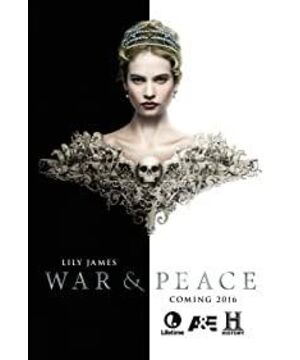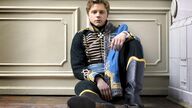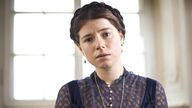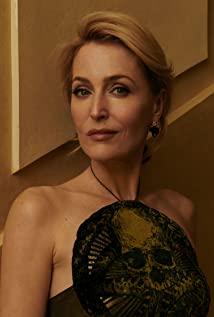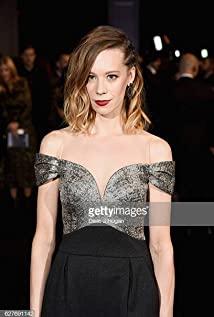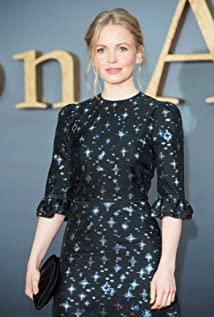Because of [War and Peace], I unexpectedly fell in love with the BBC version of Duke Andrew, to be precise his actor James Norton. When I watched the stills before, I didn't feel any fluctuations in my heart and even wanted to laugh. After all, the Soviet version of Andrei in 1966 was so heroic that I suddenly saw some black question marks in the British version.
I am a character who tends to be prejudiced and influenced by others. Before watching the BBC version, I read a lot of film reviews and commentaries about the Soviet version. Everyone gave this version a very high evaluation, saying that only the Russians could make this epic work of grandeur and depth, the story of a nation. Its essence and soul must be presented most truly by themselves, so on and so forth.
But after reading the BBC version, I want to say that the two works, separated by a full half a century, actually have their own merits, and there is no need to struggle with which one is better. Although I have not watched the Soviet version in its entirety, I also admit that the national temperaments of Russia and the United Kingdom are indeed different. Moreover, one is a movie from the 1960s and the other is a TV series from a few years ago. But this does not prevent them from presenting this magnificent work to the world from their own perspectives and methods.
Literature is literature, movies are movies, and TV shows are TV dramas. They all have their own areas of expression that they are best at and lack. And if you want to convert this tome into a piece of light and shadow, and condense it into six hours, it is unavoidable to omit deletions and changes. Therefore, in the end, the artistic value of a film and TV series cannot be measured only by how closely it fits the original.
In my opinion, the casting of the actors in the Soviet film version is closer to the characters in the book, the director is more inclined to portray the heroic, tragic and detached side of the characters, and he spares no effort to present the brutality of the battlefield and the desolation of the war, making the whole This work shows more of a huge, deep and restrained epic temperament. In contrast, the actors in the BBC TV series are younger and more diverse. The director uses four families as the starting point to reveal step by step the life of the upper class in the war years. How did these nobles with different backgrounds and different personalities get along In the turbulent times, they are displaced, accompanied by personal love, hatred, and hatred, and share the same destiny with the motherland. It's more of a love story set in the context of war, and the camera gives more room to capture the sensual and delicate side of the characters.
For the public who go directly to the original work and are hard to chew, both works are very good stepping stones that can lead us into that period of history. The more intuitive expression of images can also make it easier for us to explore and understand the ideas behind the words. All in all, I love both versions of [War and Peace] in different but equal degrees.
Unconsciously pulled a little far. In fact, I just want to express my love for James Norton, who plays Duke Andrew. Of course, as he himself describes the character, no one would not love Andre. He's not perfect, he's even ruthless at times. But he is so sacred. He is the spiritual incarnation of Toon's ideal self. People's love for Andre is more often a kind of emotion that transcends the unconstrained gender between men and women.
I tried to understand him from more perspectives with great admiration for Prince Andrei in the original book, and deep sympathy for Andrei, who showed a little emotion in his eyes and voice as interpreted by JN. Maybe a little less detachment and seriousness in the original work, but JN's Prince Andrew has more expressions of his being a human being. The confused and struggling parts of the heart that have been diluted are made up with warmth. This kind of treatment just highlights the romance of the characters, so that Prince Andrew may not be as sublime as in the novel, but he is warm and full of emotion. It is easier to touch people's hearts in shorter lengths.
Well, as soon as I became obsessed with my nympho, my mind started to get messy, so I stopped there. Continue to supplement Tuo Weng's original work to deepen your understanding, and by the way, look for other works of JN that are pleasing to the eye. Brushing the world's famous books can also get a good laughing man who specializes in Cambridge theology. There is still a good thing in this world. XD
View more about War & Peace reviews


